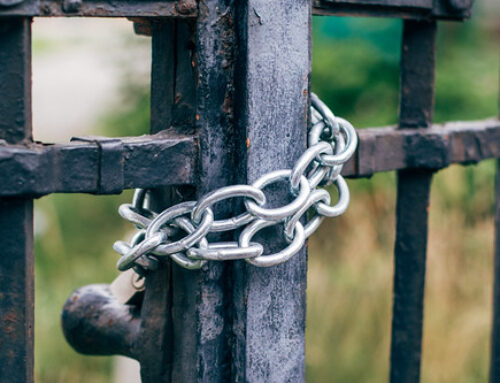Bristol newspaper gets lottery data in Virginia, but same records are secret in Tennessee
The Bristol Herald Courier reported in a Sunday story a geographical sales analysis of lottery data.
But it could only tell half the story. Why?
While it could report data from Virginia lottery sales in Bristol, Va., the same data from the Tennessee lottery in Bristol, Tenn., is confidential under an exemption in the Tennessee Public Records Act.
In Bristol, Va., half of the largest retailers of lottery tickets sell their tickets in an area that is home to some of the city’s lowest-earning residents.
The newspaper explained that it wanted to do the same analysis on Tennessee’s lottery sales — mapping the location of retailers that sold the most tickets. But that information was exempted from the Tennessee Public Records Act when the state passed its lottery law in 2003. From the story:
No one at the Tennessee lottery can answer why that information is exempt, according to (Kym) Gerlock. She said no one at the organization was part of the legislation’s drafting process or would know why.
The exemption is T.C.A. 4-51-124 (a) (1-11). It makes confidential “any information concerning lottery sales made by lottery retailers, trade secrets, security measures, systems or procedures, security reports, proposals for professional service until the proposals have been evaluated, private information of employees such as bank account information, identifying information of winners, although the corporation can disclose the name and hometown if authorized by the prize winner, all information relatives to the hiring or retention of the coo or president, all information relative to prospective lottery games.”
Not even lawmakers could remember why they exempted the retail sales data. From the story:
State Rep. Jon Lundberg, R-Bristol, said he is an advocate of transparency in government and was surprised to hear that individual retailer sales are exempt. Lundberg said the exemption doesn’t appear to involve privacy issues and is something “people have a right to know.”
He also said he has no problem introducing legislation to change the law, if it became an area of public interest.
Congressman Steve Cohen, D-Tennessee, was the primary political force behind the creation of Tennessee’s lottery law when he was a state senator. A spokesperson said Cohen did not know the origin of the exemption.
Former Reps. Mark Maddox and Gary Odom, who were in the Tennessee House of Representatives when the lottery was created, did not know why the exemption was included.
Tennessee is not alone, however, in making that information confidential. Georgia also exempts data about lottery sales by retailer. Rebecca Hargrove, who started Tennessee’s lottery, came from Georgia’s lottery and also operated lotteries in Florida and Illinois. From the story:
Kimberly Starks, media relations manager of the Georgia Lottery Corp., said the exemption is “a routine security measure.”
“Publicly disclosing how much cash retailers have historically generated as a result of lottery sales jeopardizes their security by allowing criminals to target those retailers that have historically had the most cash and therefore make the most inviting targets,” Starks wrote in an email.



